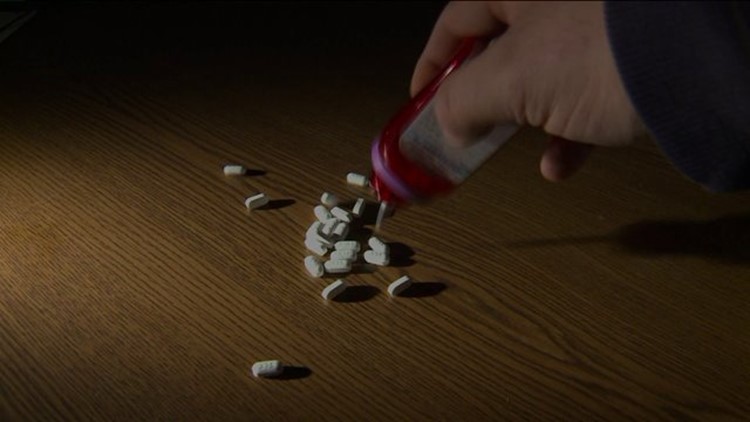What happens when you have a loved one cycling in and out of jail and mental health institutions? For one family their hope lies in a controversial program known as involuntary outpatient treatment, it’s also known as assisted outpatient treatment.
Fox CT decided to take a look at what it is after a viewer reached out to us.
They have a loved one they consider lost in the system and they want to force him to receive outpatient care.
Connecticut laws don’t allow for that but there’s renewed interested in involuntary outpatient treatment since the events at Sandy Hook.
To protect their privacy we’re not identifying the family in crisis.
Sitting inside his parent’s kitchen, a man we’ll call Zack is shedding light on the darkness his family has suffered.
His younger brother’s mental illness has draining them both physically and mentally for years.
“Up until he was about 12-years-old he took a turn for the worse. He didn't respect authority and we didn't see much of him after that.”
Zack’s brother was diagnosed with paranoid schizophrenia and was admitted to multiple mental health facilities and medicated but once he got out there was no accountability.
He stopped taking his medication and started getting into trouble. An incident last February was the final straw.
“Enough was enough,” said Zack. “I had to make that call. I had to call because he threatened to kill me and my father.”
The 29-year-old was arrested on weapons charges that night, now part of a long rap sheet that started in his teens. He’s currently behind bars with a court date in December. Zack says his brother is a danger to society.
In a state known for its robust mental health system, Zack only expresses disappointment. “Until the state intervenes and does something different it's not going to get better the same cycle is going to happen.”
And that’s where involuntary outpatient treatment comes into the picture. Zack believes it could make a difference. The treatment ensures daily or weekly monitoring of meds.
“It’s a very identifiable group that the system doesn't currently adequately serve,” said Hartford Probate Judge, Robert Killian.
For years he’s been advocating for mandated outpatient treatment for individuals who are either a danger to themselves, others, or are gravely disabled. It’s an end to the cycle of mental institutions and jail, according to Judge Killian.
“It would be limited in scope, and it would be understood is that what we're doing is letting you out of the hospital conditioned upon you taking your meds,” said Judge Killian. “It would be time limited, six months is what I think would make the most sense.”
The Treatment Advocacy Center reports 44 states plus the District of Columbia have laws mandating outpatient treatment; Connecticut is not on that list.
“Even though 44 states have laws on the books to mandate it, in fact 70 percent of them don't use it,” said Jan VanTassel with the Connecticut Legal Rights Project. She said it doesn’t work and can potentially violate a person’s civil rights.
“Enforcing it becomes difficult because if the person doesn't want to take it what do you do? Do you send the police out to their house and take them some place to inject them?”
Another approach favored by the Department of Mental Health and Addiction Services is called Peer Bridgers. It engages hard to reach individuals with a connection to someone who has experienced mental health recovery.
“It’s a peer run agency that provides peer support,” said Department of Mental Health and Addiction Services Commissioner, Patricia Rehmer. “We move away from the, ‘you don't know what this is like,’ and you move more into a relationship. We know relationships are at the core of good psychiatric care.”
Commissioner Rehmer says there are many other resources available to individuals with persistent mental illness; regardless, Zack’s brother fell through the cracks.
“I want to say we need to be better in working with families, to give them as much information about what's out there and what's available,” said Commissioner Rehmer.
Zack says his family has suffered through 15 years of misery and hopes his brother’s story will keep the conversation open for change.
Involuntary outpatient treatment has been brought up and rejected by lawmakers in at least three occasions since 1996.
Come this legislative session lawmakers will once again take another look at it.
A task force created after the events at Sandy Hook requested they do so.



